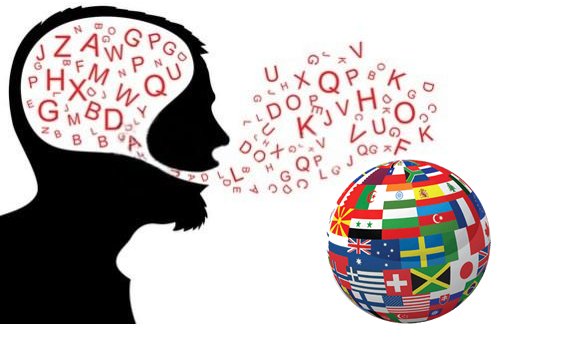
So you learned how to speak a language, either basic or expert, and perhaps you are told that your accent is off, or that you've been pronouncing a word that took you days to memorize completely wrong.
Perhaps you're even having trouble understanding because you think you're hearing one word when in reality the word has a slight deviation in pronunciation, so it wasn't the word you even thought it was!
How frustrating, right?
I have dealt with this problem, and I practiced correcting these errors when I was learning Spanish in California for two years.
Speaking with natives, I learned
a simple trick that changed everything, so much so that people often ask if I am from Argentina or another South American country when they speak with me.
The trick is broken down into 3 parts:
- 1. How you hear a word,
- 2. How you write the word,
- 3. Position of the mouth.
First, you have to write down the word
EXACTLY as you hear it, without looking at it, and ignoring spelling. Only write what you hear. In music we call this
developing your "perfect pitch." For instance, in Spanish the word
"DEBER" in most parts of the world is pronounced more like
"theybear," as in the American English pronunciation of
"they bear."However, most native English speakers of Spanish will pronounce it
"daybear" using a very hard
"D" sound that is not typically produced by native speakers. So we combine step one with step two and listen very carefully and write exactly what we hear in our mother tongue the way we hear it.
So when we write the word as heard from a native speaker, accent and all, we can write it as we hear it,
"theybear." In this step it is really important to note how harshly native speakers pronounce each syllable, and with what part of the mouth, and more importantly for Latin languages, where the tongue goes.
For instance, the
"D," although it sounds in English like a
"TH," is not a harsh English
"TH." It's very light.
This happens because they do not put their tongues in front of their teeth.
English speakers bite their tongues a whole lot, and not just in the form of the expression, but when they talk they put their tongues all over in their mouths.
If you are a native English speaker try saying
"THEY" with your teeth clenched.
Hard right?
Well that's how Latin Americans will usually speak, keeping their tongues back behind their teeth. So saying the
"D" like a
"TH" but keeping our teeth clenched will get us closer to sounding more native. This is also why
"R" will tend to sound like
"D".
Alright. Now a little tip for the road: some sounds just don't exist in your language, but perhaps there is something you do with your body that makes that sound. Yes, this tip is as weird as it sounds.
While learning French I found that pronouncing a Paris nasally
"R" is rather difficult because we simply do not pronounce it in America, and there is no way to write it phonetically because no words sound like it. So what does the Paris "R" really sound like?
n French classes in America there is a joke that it sounds like spitting, which it really does. That's as close to it as we can get. So I explored what made this sound and realized that when we spit we open our nasal cavity in the back of our throat by pushing the tongue
ALL THE WAY BACK, almost arching the back of it.
I practiced this technique for a long time and found that,
"voila!" I could finally make the French
"R" sound that most of my classmates were still struggling with, all because I took the sound of what resembled the
"R" made in French and applied this technique to pronounce it.
So how does this trick work?
In music there is something called "perfect pitch."
To practice perfect pitch on the violin, some people will blindfold themselves while one note on the piano is played aloud, and,
without looking, they will try to find the note on the violin's strings.
At first you can sometimes locate a note pretty close to it and slur up to the correct note.
However, you usually will not land right on the correct note. Your brain doesn't see the note; you're not programmed.
So, in speaking we too must develop the idea for where the sounds of letters fall within our scale of speaking.
We must be able to
see the word in our minds and find the closest matches to those sounds in order to develop the white matter in our brain so that, just as with the violinist, we can simply begin to "play the note" when we hear it.
You may have practiced for a long time, or even become very familiar with the looks of the instrument you use when speaking, but you'd be surprised how much you can do when you explore new ways of using it.
Did you find this useful?
Please let me know in the comments below and post your own advice!
If you have any questions about pronouncing other words, ask and I will look into and perhaps write something on it to help you out!

 April 2017
April 2017 3
All
3
All

 English
English
 English
English
 English
English














































